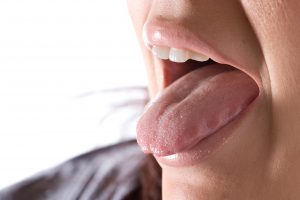 Thick saliva in throat – or mucus – is a viscous, acidic, and semi-opaque secretion, instead of the clear and watery one. Changes can be due to large quantities of organic matter in the saliva caused by a variety of reasons.
Thick saliva in throat – or mucus – is a viscous, acidic, and semi-opaque secretion, instead of the clear and watery one. Changes can be due to large quantities of organic matter in the saliva caused by a variety of reasons.
Normal saliva is a lubricating fluid to help us eat and talk. It is also an antibacterial agent to help eliminate harmful bacteria in our mouth. Furthermore, it contains enzymes to help aid in food digestion and is normally thin, non-irritating, and non-disturbing.
Advertisement
Thick saliva is not normal, and could be an indication of another health condition. It’s important to understand the possible causes of thick saliva to get the proper treatment.
Causes of thick saliva
Radiation therapy: Undergoing radiation therapy of the head and neck can produce thick saliva. Thick saliva may appear within the first couple of weeks of radiation therapy. Recovery of salivary glands can be seen within two to six months after radiation therapy has stopped, but thick saliva may be present up to five years after. Factors that contribute to normalization of saliva after radiation include age, dosage of radiation, and field of exposure.
Dehydration: Insufficient hydration throughout the day can contribute to thick saliva.
Smoking: Smoking irritates the internal lining of the upper respiratory tract, increasing mucus production. As a result, the smokers may feel as if there is something sticky in their throats. A cough with mucus may occur in some smokers as well.
Candidiasis: This is caused by the fungus candida, so if your thick saliva is also accompanied by white patches in your mouth it could be a sign of oral fungus, which requires antifungal treatment.
Cough and cold: When you are sick with the cold, flu, or another respiratory infection, extra mucus is produced, causing thick saliva.
Autoimmune disorders: Some autoimmune disorders like Sjögren’s syndrome can cause thick saliva.
Seasonal allergies: If thick saliva is only present during certain times of the year when you are around certain triggers, it could be a result of seasonal allergies. Pay attention to when you experience thick saliva to detect a possible allergen. Commonly, the allergy season spans from May to September, but winter allergies are possible, too.
Medications: Some medications indicate that you must consume plenty of water when taking them. This is because they can dry out the oral cavity, causing saliva to become thick. Ensure you drink enough water if your medication lists dry mouth as a side effect.
Diabetes and elevated blood sugar: When blood sugar level gets high or uncontrolled, it leads to dry mouth, once again causing thick saliva.
Gastroenteritis: Having gastroenteritis could affect saliva production, thickening its consistency.
Gastroesophageal reflux disease (GERD): Acid produced by the stomach pushes up through the esophagus, so the mouth produces extra saliva to combat the acidity.
Cystic fibrosis: In cystic fibrosis, the body produces abnormally thick and sticky mucus.
Home remedies for thick saliva in throat
 If your thick saliva is caused by a serious health condition, you need to speak to your doctor about treatment to prevent complications. If your thick saliva isn’t a cause for concern, there are some home remedies you can try to improve the condition.
If your thick saliva is caused by a serious health condition, you need to speak to your doctor about treatment to prevent complications. If your thick saliva isn’t a cause for concern, there are some home remedies you can try to improve the condition.
- Drink plenty of water throughout the day to prevent dehydration.
- Quit smoking.
- Take small bites and chew your food well.
- Eat soft, moist foods at room temperature.
- Avoid foods that stick to the roof of your mouth.
- Moisten foods with broth or soup.
- Suck on sugarless candy or gum to promote salivation.
- Follow proper hygiene, like regular tooth-brushing and flossing.
- Use a humidifier to moisten your room.
- Eat pineapple or papaya to thin out saliva.
- Try saliva substitutes if you have had your salivary glands removed.
- Avoid allergens and other possible allergy triggers.
- Practice cold and flu prevention so you don’t get sick.
- Limit caffeine and alcohol.
Foods to help prompt salivating and decrease the thickness of saliva
Advertisement
What we eat can have a large effect on saliva, so here are some common foods that not only help boost saliva production, but also decrease the thickness of saliva.
- Use low-fat milk products.
- Try using cooked milk products.
- Swap dairy-based products with soy if milk causes the thickening of saliva.
- Consume tart or sour beverages like ice tea, lemon, and lime drinks.
- Drink carbonated beverages.
- Suck on ice chips.
Here are food items you should avoid if you have a dry mouth as they could lead to thick saliva.
- Dry meats, poultry, fish without sauce
- Dry bread, pasta, pretzels, dry cereal
- Bananas, dry fruits, vegetables (unless they are in sauce)
- Cookies, cake, pie (unless soaked in milk)
Related: Mucus in throat causes, symptoms, and natural home remedies
